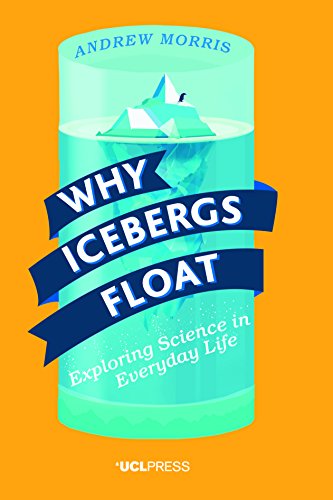
Why Icebergs Float: Exploring Science in Everyday Life
by Andrew Morris
Publisher: UCL Press 2016
ISBN/ASIN: 1911307037
ISBN-13: 9781911307037
Number of pages: 222
Description:
Andrew Morris takes examples from the science we see every day and uses them as entry points to explain a number of fundamental scientific concepts in ways that anyone can grasp. This book encourages us to reflect on our own relationship with science and serves as an important reminder of why we should continue learning as adults.
Download or read it online for free here:
Download link
(13MB, PDF)
Similar books
 How Modern Science Came into the World
How Modern Science Came into the Worldby H. Floris Cohen - Amsterdam University Press
A vision of the Scientific Revolution as made up of six distinct yet narrowly interconnected, revolutionary transformations, each of some twenty-five to thirty years' duration. The author explains how modern science could come about in Europe ...
(7945 views)
 Science and Hypothesis
Science and Hypothesisby Henri Poincare - W. Scott
Henri Poincare wrote the essays in this book in 1905, the landmark period in physics after Maxwell and before special relativity. Not just the science, but the social attitudes of the day come through in this pleasant little book.
(11864 views)
 The Limits Of Science
The Limits Of Scienceby Nicholas Rescher - University of Pittsburgh Press
Perfected science is but an idealization that provides a useful contrast to highlight the limited character of what we do and can attain. Rescher's discussion focuses on the question: what are the theoretical limits on science?
(14793 views)
 The Evolution of Modern Science
The Evolution of Modern Scienceby Thomas L. Isenhour - Bookboon
The Evolution of Modern Science outlines the story of science from Aristotle to the present. The goals of this book are to show the evolution of modern science in historical and political context and to demystify science.
(9859 views)